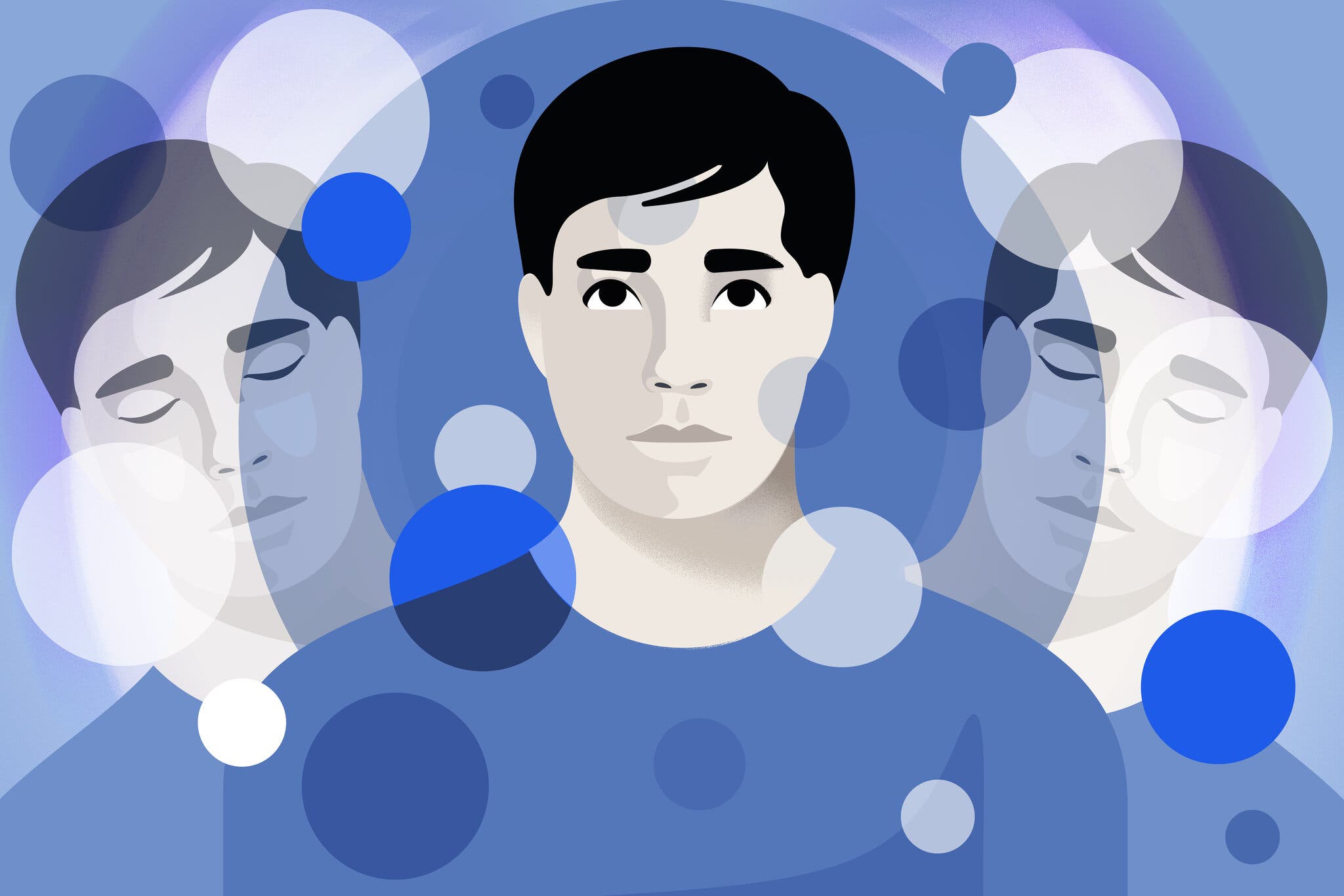The TikTok Effect: Self-Diagnosing ADHD

Table of Contents
The Allure of TikTok's ADHD Content
TikTok's short-form video format and emphasis on relatable personal experiences have made it a fertile ground for discussions on ADHD. The accessibility of ADHD content, often presented in engaging and easily digestible ways, is a key factor in its appeal. Hashtags like #ADHD, #ADHDsymptoms, and #neurodivergent have become incredibly popular, creating online communities where individuals share their experiences, coping mechanisms, and struggles.
- Relatable Experiences: Many creators share personal anecdotes, struggles, and coping strategies, fostering a sense of community and validation for viewers who may be experiencing similar challenges.
- Influencer Impact: Popular TikTokers often discuss their own ADHD diagnoses and treatment journeys, inadvertently shaping perceptions and influencing viewers' self-assessments.
- Community Building: The platform facilitates connection and support among individuals who may feel isolated or misunderstood, offering a sense of belonging.
The Risks of Self-Diagnosing ADHD via TikTok
While TikTok offers a sense of community, relying on it for self-diagnosing ADHD carries considerable risks. The informal nature of the platform means information accuracy is not guaranteed. Misinformation can easily spread, leading to inaccurate self-assessments and potentially harmful consequences.
- Misinformation and Inaccurate Representations: Some TikTok content may misrepresent ADHD symptoms, leading to incorrect self-diagnoses. The casual nature of the platform doesn't always guarantee accurate or scientifically-backed information.
- Confirmation Bias: Individuals searching for information on ADHD may inadvertently seek out content that confirms their pre-existing beliefs or suspicions, reinforcing inaccurate self-diagnoses.
- Unqualified Advice and DIY Treatment: TikTok is not a substitute for professional medical advice. Following unqualified advice or attempting DIY treatments based on social media content can be detrimental to mental health.
- Self-Stigmatization and Anxiety: Self-diagnosing without professional confirmation can lead to unnecessary anxiety and self-stigmatization, impacting self-esteem and mental well-being.
Responsible Information Seeking Regarding ADHD
Navigating information on ADHD requires critical thinking and a commitment to seeking credible sources. Relying solely on social media platforms like TikTok for information about self-diagnosing ADHD is risky.
- Credible Sources: Seek information from reputable websites of professional organizations such as the Attention Deficit Disorder Association (ADDA) or the CHADD (Children and Adults with Attention-Deficit/Hyperactivity Disorder). Look for peer-reviewed research articles and evidence-based information.
- Professional Help and Assessment: A proper diagnosis of ADHD requires a comprehensive evaluation by a qualified healthcare professional, such as a psychiatrist, psychologist, or neurologist. This involves detailed assessments, including interviews, questionnaires, and behavioral observations.
- Managing Symptoms: If you suspect you might have ADHD, focus on seeking professional help for a proper diagnosis and evidence-based treatment plan, rather than self-treating based on information from social media.
Differentiating Between ADHD Symptoms and Everyday Challenges
Many everyday struggles, such as procrastination, forgetfulness, or difficulty organizing, can mimic ADHD symptoms. However, a clinical diagnosis requires a pattern of persistent symptoms significantly impacting daily functioning, diagnosed by a professional. A comprehensive assessment can help differentiate between common challenges and a clinically diagnosed condition.
The Importance of Professional Diagnosis and Treatment
A formal diagnosis from a qualified healthcare professional is essential for accurate assessment and effective treatment of ADHD. Self-diagnosing ADHD based on TikTok videos alone is insufficient and potentially harmful.
- Formal Diagnosis: Professional assessment involves a comprehensive evaluation to rule out other conditions and ensure an accurate diagnosis.
- Treatment Options: Treatment options typically involve a combination of therapeutic interventions, such as cognitive behavioral therapy (CBT), and in some cases, medication.
- Personalized Treatment Plans: Effective treatment plans are tailored to individual needs and symptom presentations, taking into account the person's unique circumstances and challenges.
Conclusion: Navigating the TikTok Effect and Seeking Proper ADHD Diagnosis
The popularity of self-diagnosing ADHD via TikTok highlights the need for responsible information seeking and the crucial role of professional assessment. While TikTok can offer community and support, it's not a substitute for professional medical advice. Relying on social media for self-diagnosing ADHD can lead to inaccurate diagnoses, misleading treatments, and increased anxiety. Don't rely on TikTok for self-diagnosing ADHD. If you suspect you have ADHD, seek professional help for a proper diagnosis and evidence-based treatment plan. Remember, accurate information and professional guidance are essential for effectively managing ADHD.

Featured Posts
-
 Black Hawk Pilots Disregard For Instructor Led To Deadly D C Crash
Apr 29, 2025
Black Hawk Pilots Disregard For Instructor Led To Deadly D C Crash
Apr 29, 2025 -
 Fc Kaiserslautern Vs Bayern Muenchen Champions League Begegnung
Apr 29, 2025
Fc Kaiserslautern Vs Bayern Muenchen Champions League Begegnung
Apr 29, 2025 -
 The Thing Jeff Goldblum Has Never Done A Candid Interview
Apr 29, 2025
The Thing Jeff Goldblum Has Never Done A Candid Interview
Apr 29, 2025 -
 Capital Summertime Ball 2025 Tickets Tips And Strategies For Harwich And Manningtree
Apr 29, 2025
Capital Summertime Ball 2025 Tickets Tips And Strategies For Harwich And Manningtree
Apr 29, 2025 -
 Porsche 356 Jejak Sejarah Dari Pabrik Zuffenhausen Jerman
Apr 29, 2025
Porsche 356 Jejak Sejarah Dari Pabrik Zuffenhausen Jerman
Apr 29, 2025
Latest Posts
-
 Super Bowl Style Blue Ivy And Rumi Carters Matching Looks
Apr 30, 2025
Super Bowl Style Blue Ivy And Rumi Carters Matching Looks
Apr 30, 2025 -
 The Influence Of Blue Ivy Carter On Tina Knowles Iconic Eyebrows
Apr 30, 2025
The Influence Of Blue Ivy Carter On Tina Knowles Iconic Eyebrows
Apr 30, 2025 -
 Tina Knowles Bold Brows Did Blue Ivy Carter Play A Role
Apr 30, 2025
Tina Knowles Bold Brows Did Blue Ivy Carter Play A Role
Apr 30, 2025 -
 The Reasons Behind Beyonce And Jay Z Keeping Sir Carter Out Of The Public Eye
Apr 30, 2025
The Reasons Behind Beyonce And Jay Z Keeping Sir Carter Out Of The Public Eye
Apr 30, 2025 -
 Understanding Beyonce And Jay Zs Approach To Sir Carters Privacy
Apr 30, 2025
Understanding Beyonce And Jay Zs Approach To Sir Carters Privacy
Apr 30, 2025
